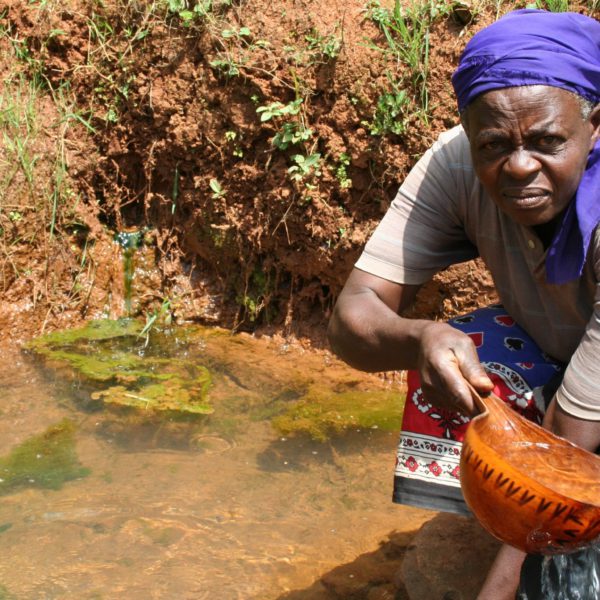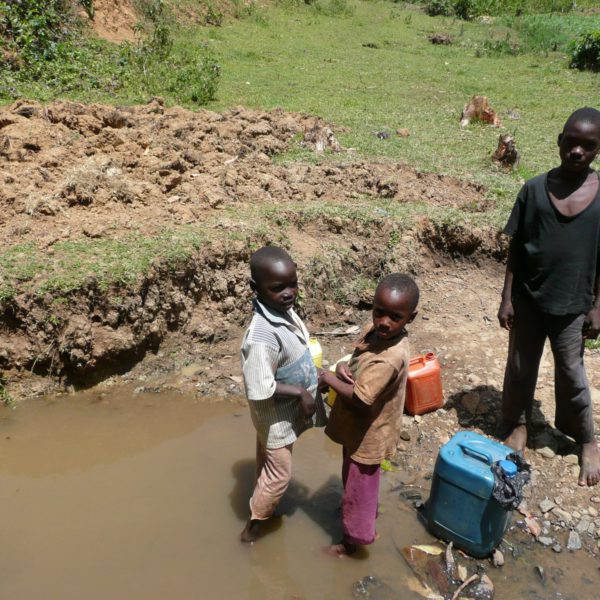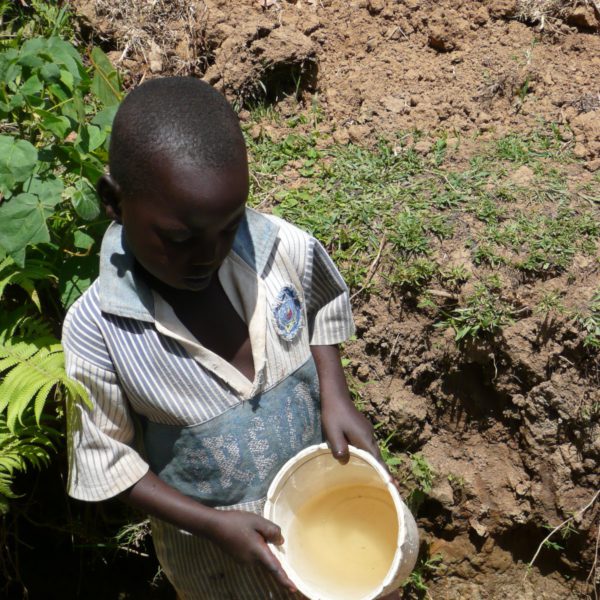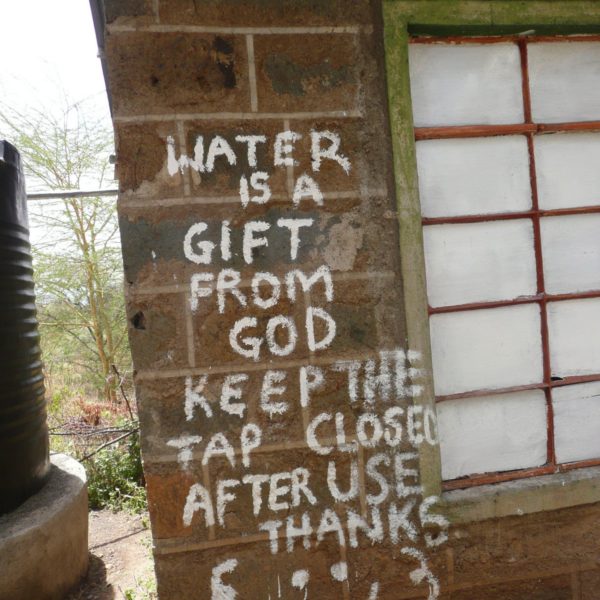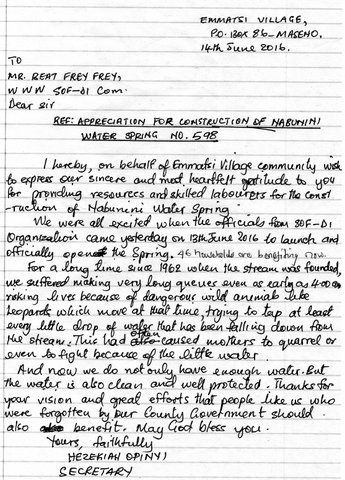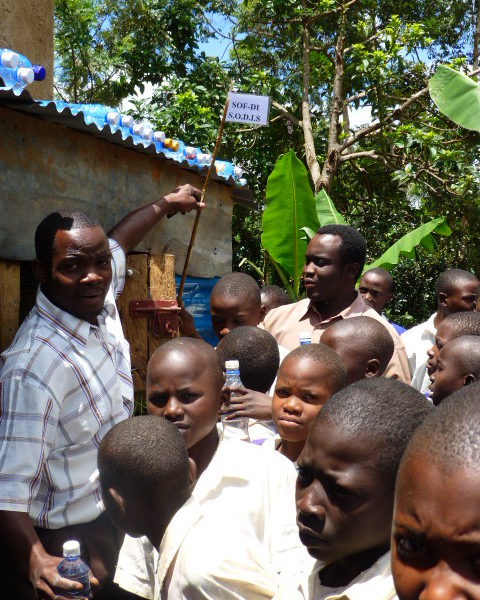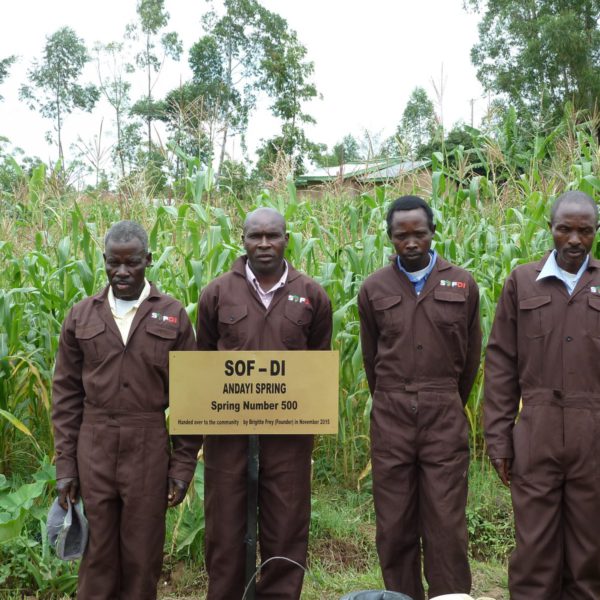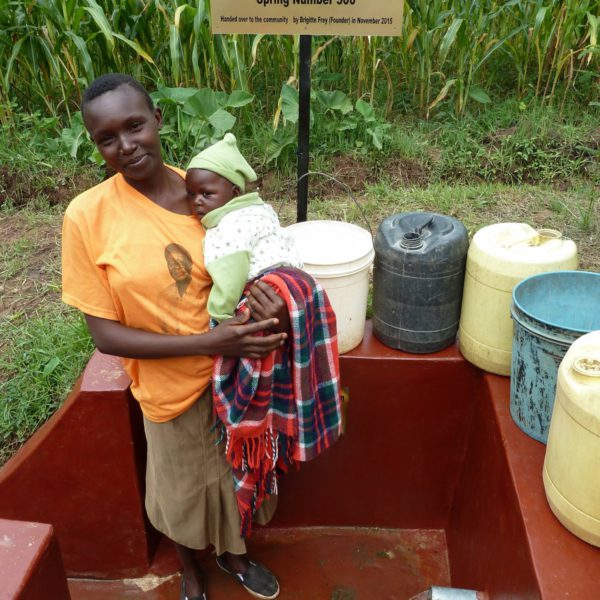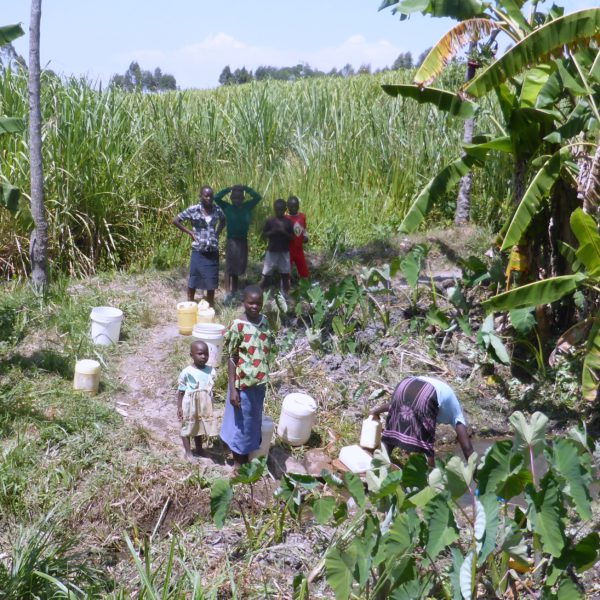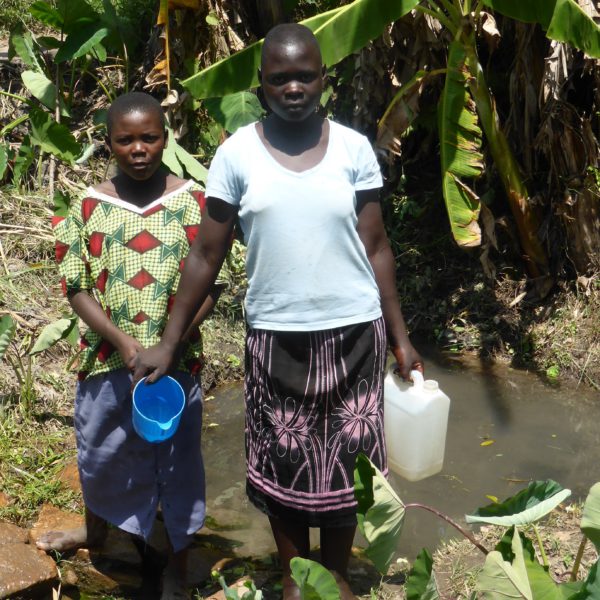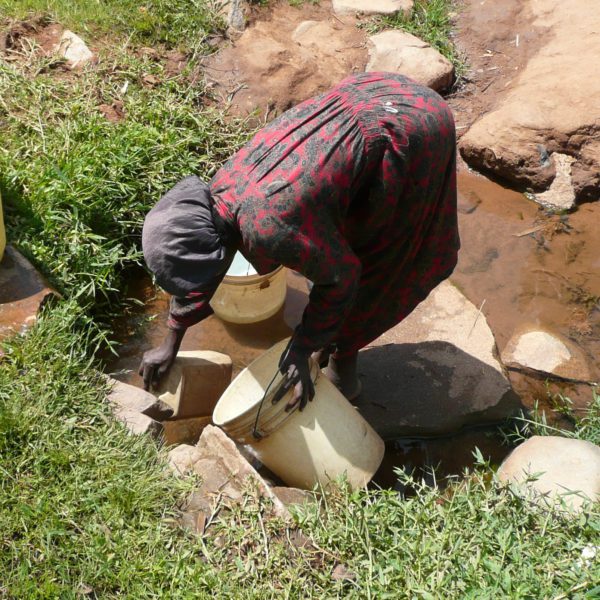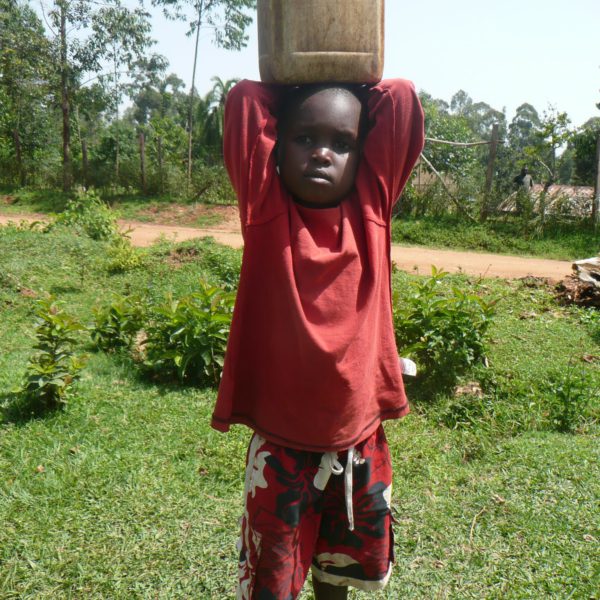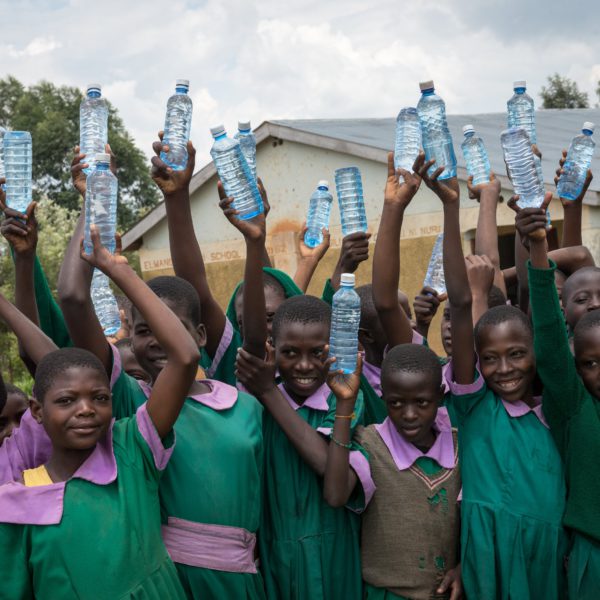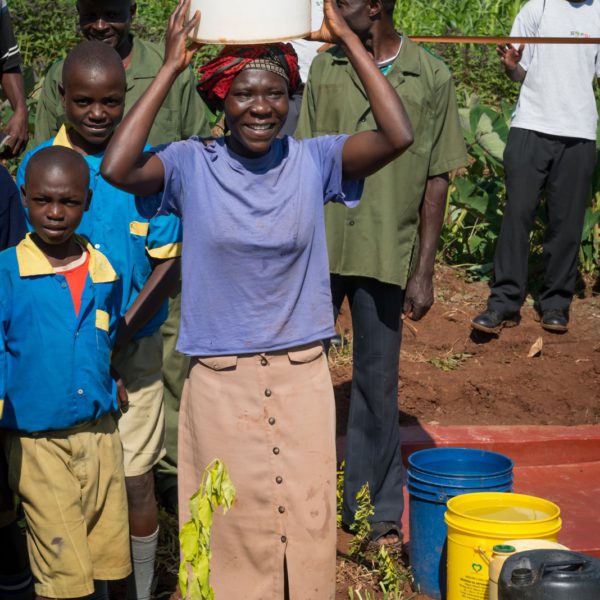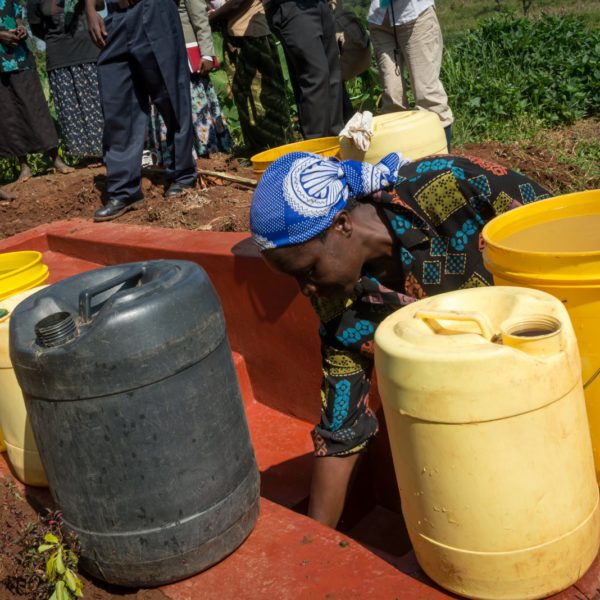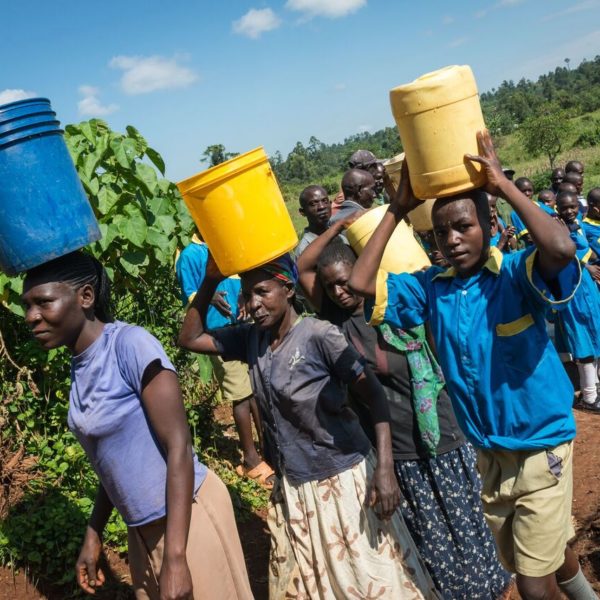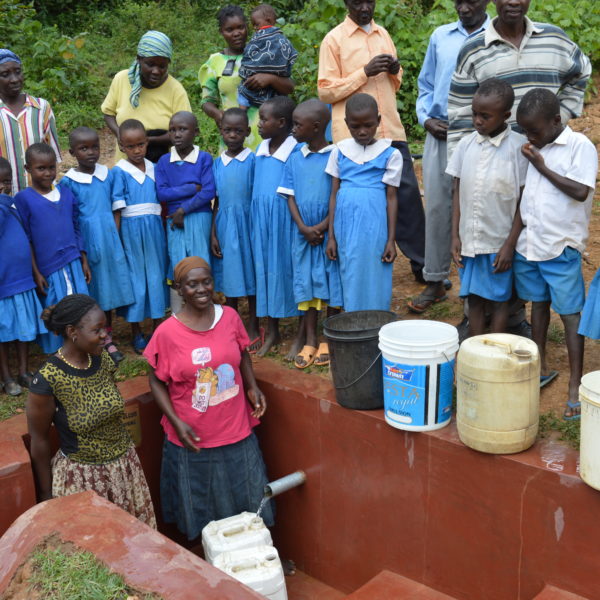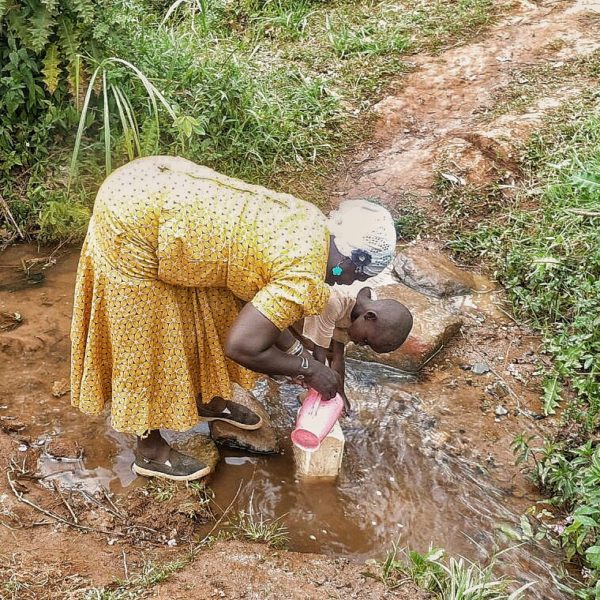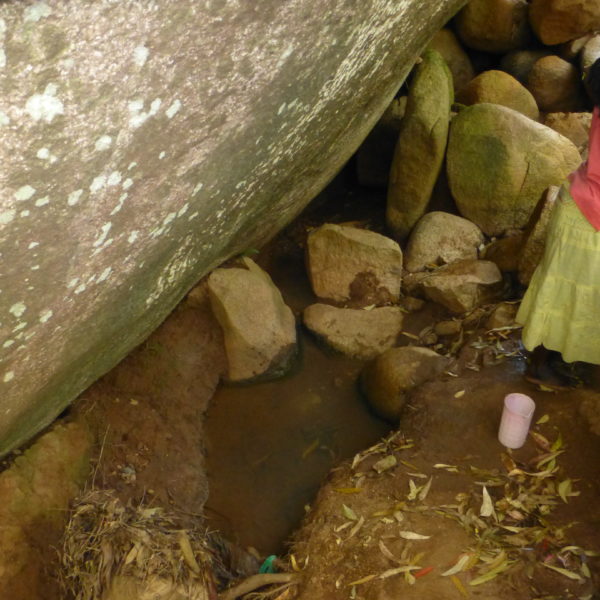THE CHALLENGE
Less than 13% of the population in rural Kenya has piped water. Most rural residents are forced to collect water from unimproved sources like streams, rivers, pooled groundwater, or unfiltered rainwater. Collecting water from open sources like these comes with high risks to health and at a high cost in terms of productivity lost due to time wastage and resulting illness. This impacts social and economic outcomes in other ways too. It is mostly women and children (especially girls) responsible for fetching and boiling the water in their households. The time it takes to do so can contribute to school absenteeism and a loss of economic productivity. To put it simply, lack of clean water robs children and families of health, dignity, education, and opportunities.
OUR APPROACH
Without access to the fundamental human right of clean water (a right declared by the UN), all other development activities to eliminate malnutrition, poor health, and poverty are undermined. This is why we have made protecting springs the foundation of our work in the farming communities we serve. Taking into consideration that about 70% of hospitalizations in rural areas are caused by unsafe water and lack of enough healthy food, we choose to concentrate our funds on the prevention of illnesses rather than curing them.
To date, SOFDI has protected over 2,032 springs, providing over 500,000 people with clean water. Our work is ongoing as we continue to protect 16 new springs per month and work closely with the Ministry of Health and Department of Water and Sanitation to identify areas suitable and most in need.
We are very proud to contribute to the wellbeing of disadvantaged communities at relatively low costs. Each spring serves on average 100-200 people, and up to 500 when a whole school is reached. The costs include construction and administration of the spring’s protection, an engraved brass plaque and a tree planted at the site. Our total costs for one spring are US $400 – a true shoe-string budget compared to other organizations!
We have a participatory approach to create an ownership attitude (this way the beneficiaries also have to contribute 10 to 20% of our costs). We insist that the community members:
- Officially apply for protection of an unprotected spring
- Have the official land owners’ approval for the spring to be protected
- Form a committee with defined responsibilities for the maintenance of the spring
- Deliver material which they can find for free in the vicinity, such as stones and sand
- Provide food for the workers
- Assist workers during work, for example by cutting stones into proper sizes
After completion the spring is tested, and only after a positive outcome can the spring be opened. So far, all of our springs have tested negative, i.e. the water is safe after protection. A brass plaque is then fastened at the spring with the name and number of the spring, the date of inauguration, SOFDI’s name and, if there is a donor, the donor’s name inscribed. Finally, the sub-chief or chief of the community signs an official document, and the community sends a letter of thanks indicating how many households benefit from the spring.
Research shows that it also requires more than just clean water at the source to reduce risks, which is why we also make Water Sanitation and Hygiene (WASH) education a key part of our approach. The communities are taken through a training on best practices of Water Sanitation and Hygiene, not just around the spring, but also around and within their homes to prevent the spread of pathogens.
Access to this education and a protected spring (lasting 15 years) helps beneficiaries save time, increase productivity, reduce healthcare costs, and overall prevent illness and despair.

